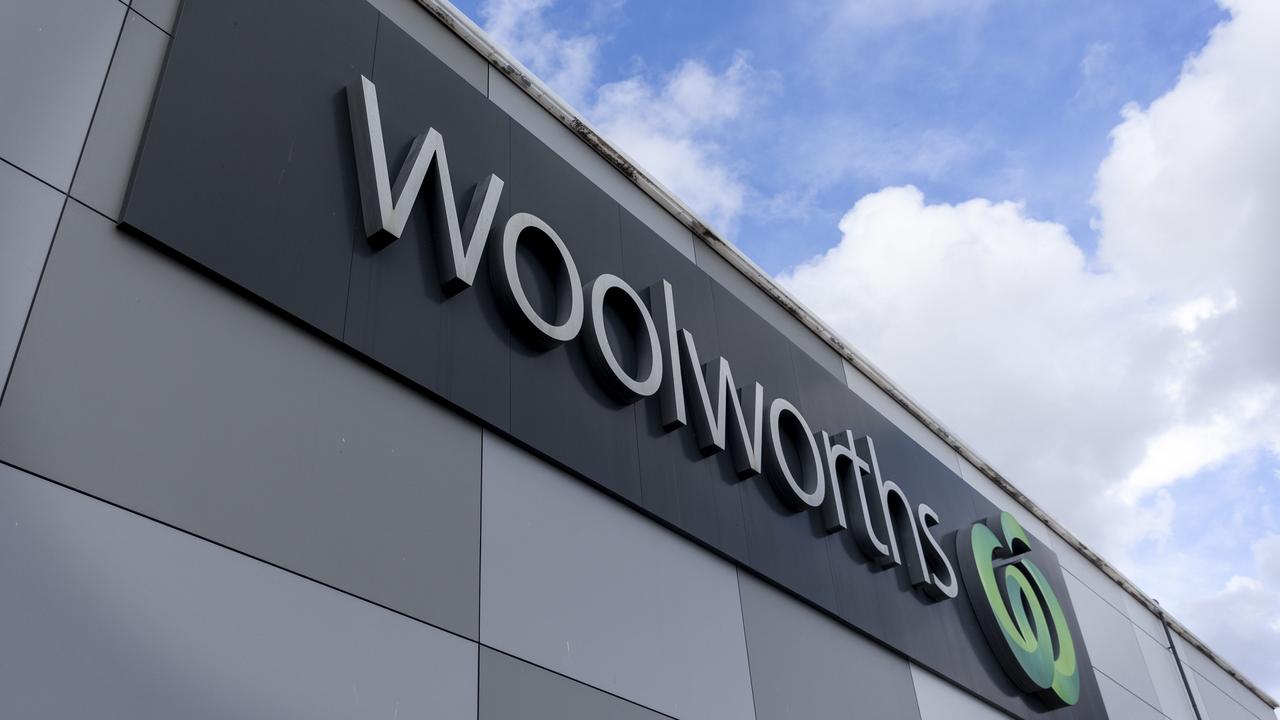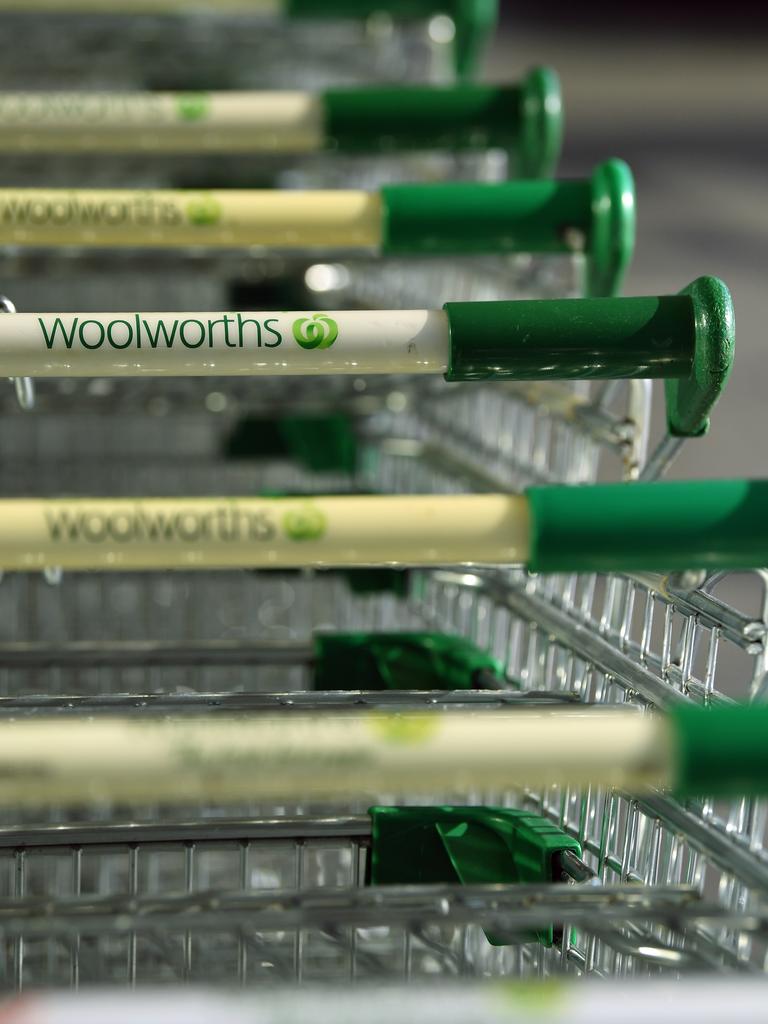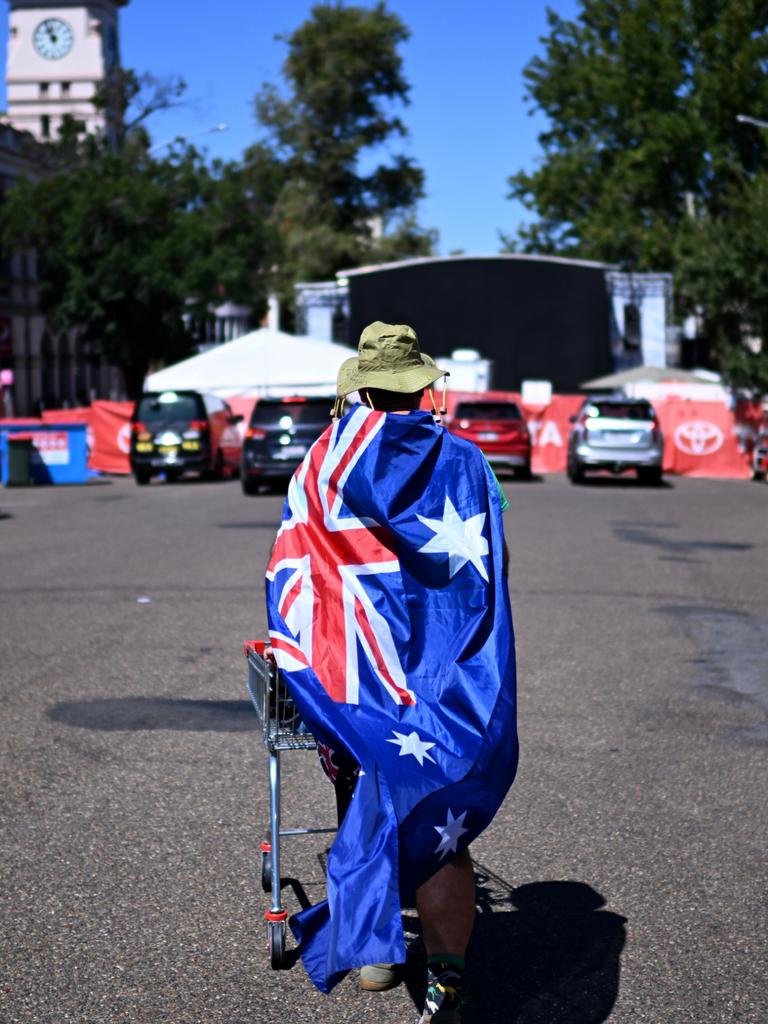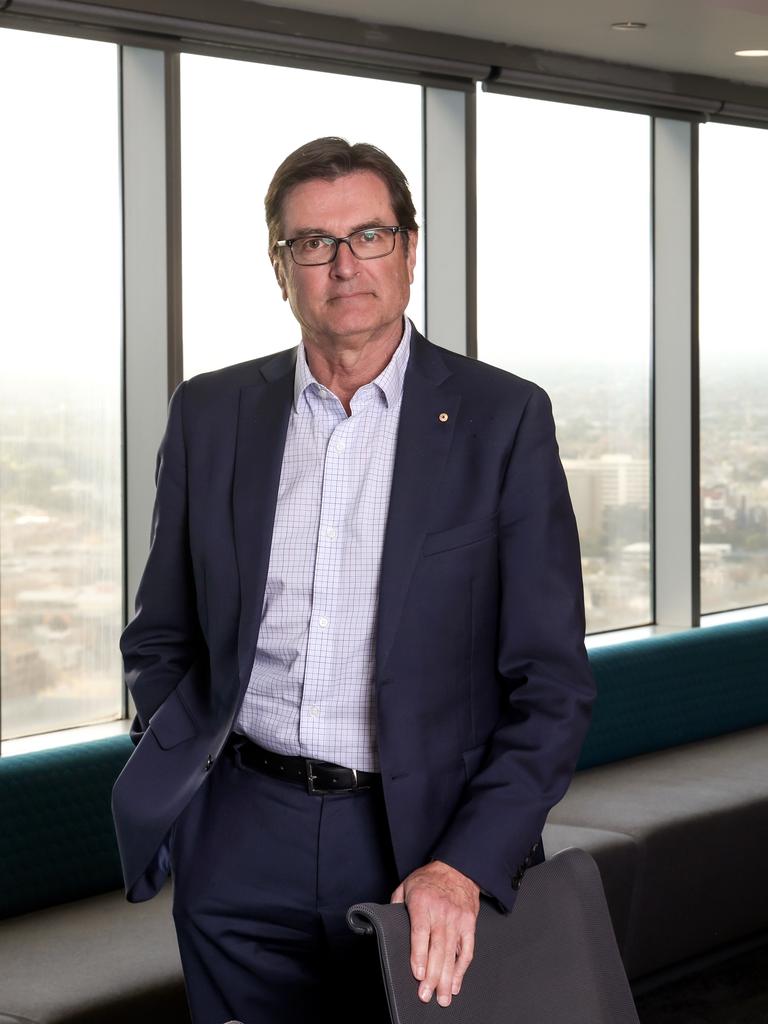A good time for Woolies to take out the accounting trash
The retailer has avoided a bumper profit. But if political heat is the reason for doing so then it is a sorry state of affairs for business.

In the midst of a political firestorm Woolworths management has found more than $1.7bn in writedowns that are likely to make its first-half profit numbers very sorry indeed.
The financial hits are linked to the stalled performance across New Zealand, triggering a whopping $1.5bn charge. The retailer has gone for the full kitchen sink by slicing the value of its demerged Endeavour drinks business by another $209m.
If there was a time to take out the financial trash, it is now, given the wolves will be coming after anything resembling a bumper profit. However, if this is behind the writedowns, it really is a sad state of affairs for Australian business.
The losses are non-cash so shareholders will still be in line for a dividend. And the Australian food business – taking in the supermarkets – performance has been robust in the face of cooling spending. Again, it will be supermarkets which powers a modest tick-up in first-half underlying earnings.

Woolworths’ full interim accounts are not out until next month but, based on the writedowns flagged on Monday, the retailer may just deliver its first bottom-line loss since it was sunk by its disastrous move into the Masters hardware chain nearly eight years ago.
Indeed, it was this multi-billion loss that prompted the management shake-up elevating Brad Banducci to chief executive.
To be sure, any first-half loss or the collapse in bottom-line profit will take some of the intense political pressure off Woolies. The supermarket has become the big-end-of-town whipping post of the moment, as accusations from politicians of price gouging have led to several separate inquiries into its pricing practices.
The inquiry that will consume most of Woolies management attention will be the year-long ACCC inquiry announced by Anthony Albanese last week specifically to look at pricing and supply chain among the supermarkets.
The finer terms of reference for the supermarkets probe are now being thrashed out between Treasurer Jim Chalmers and the ACCC.
These claims have been mixed into a brew around the broader cultural backlash amid suggestions Woolies – one of the nation’s biggest employers – wasn’t doing its bit to celebrate Australia Day. This made for a January media frenzy but, sadly, it is Woolies’ front staff who have been dragged into the drama.
Even so, there are big questions for the Woolies board, led by Scott Perkins, around the depth of the problems in New Zealand. Perkins has more bandwidth now Origin Energy, which he also chairs, is no longer in takeover defence mode.

Effectively, Woolies has written off half of the goodwill value of the New Zealand operations which have been sitting at much the same balance since former boss Roger Corbett bought the business nearly two decades ago. Why now?
It’s only in recent months Woolies has opted to rebrand the business from Countdown back to its Australian name with the process only part way through.
Woolies is capitalising the costs upfront, which is partly behind the 42 per cent drop in first-half earnings in New Zealand, but it doesn’t explain the sudden drop-off in sales.
In accounting terms, Woolies is taking the view the market has been rebased lower over the medium to longer term. Higher interest rates are hurting, but New Zealand is probably closer to the cutting cycle than Australia.
Woolies is pushing ahead with the rebranding, but the scale of the writedowns suggest the Kiwis haven’t taken a shine to the new name or – more worrying for Banducci – the execution has been flawed. There is history in the Woolies brand across the Tasman. It only shifted to the Countdown name in 2011.
On Monday, the Woolies boss said his confidence in the transformation of New Zealand remains, with signs of an early pick-up in sales momentum.
The losses on Endeavour, the owner of Dan Murphy’s, follows an accounting interpretation saying Woolies no longer has management influence over the business. This means its 9 per cent stake in the drinks and pubs business is now mark to market.
The Woolworths numbers are out February 21.
Combet’s Future
Over coming years, Greg Combet’s challenges at the $200bn Future Fund will be twofold.
The big priority will be to stand in the way of governments from both sides who will be increasingly tempted on making a raid on the $200bn now sitting inside the nation’s sovereign wealth fund. Or at least start drawing a distribution to prop up strained budgets, before the looming liabilities are covered.
The other challenge for Combet, the former ACTU secretary who held climate change ministerial roles in both the Rudd and Gillard Labor governments, will be to curb his instincts to drive the Future Fund into greener energy investments.
The fund needs to be kept well away from politicians talking of nation building and pressuring the fund to back housing projects, rail or a greener future with solar farms. The Future Fund needs to guard its hard-won independence and keep delivering on long-term returns.

After leaving politics, Combet has worked in and around big super so has a feel for the importance of the clarity of mandate. This includes a board role with super fund-backed ME Bank to deputy chair of Australian Super. Most recently he was chair of the IFM Investors, the $215bn wholesale fund that invests in big infrastructure and long-term projects on behalf of super funds and other investors.
In welcoming the role, Combet said the Future Fund “is an outstanding national asset and significant investor on behalf of all Australians”.
Outgoing chair Peter Costello has forcibly argued the case the Future Fund can’t become a piggy bank to be raided by the government of the day.
And it will be a brave future Liberal Treasurer who goes against the wishes of the party elder who can take the credit for launching the fund in the first place. Costello can also take credit for seeding the Future Fund with $60bn – its only capital injection – that could have otherwise been spent by the Howard government on voters.
Now it’s up to Combet to make the same case to Labor, which is less weighed down by the fund’s history. After a freeze expired in 2020, there is nothing stopping a government to start drawing down the capital or start using earnings to prop up the budget. The previous government had put in a policy to leave the Future Fund alone until after 2026. Chalmers also committed to that date, but Combet will need to start making the arguments as early as possible to keep the Future Fund off limits beyond the end of the decade.
One of Costello’s strongest arguments for leaving the Future Fund alone, was that it is needed to cover future liabilities and the fastest growing area is the Military Super and ADF injury and disablement claims. There is no premium going into the Future Fund for this but long-term projections have the combined military liabilities rising from $114bn today to $245bn in 2045 and $477bn in more than 3½ decades.
Combet now takes one of the most influential roles in Australian finance. He represents only the fourth chair in the 17-year life of the Future Fund. Former Commonwealth Bank boss David Murray built up the Fund as foundation chair, this was followed by Gonksi then Costello who became chair in 2014.
Treasurer Jim Chalmers had promised to cast as widest net as possible for a new chair didn’t have far to look in the end. He plucked Combet from the pet project of Prime Minister Anthony Albanese’s newly formed Net Zero Economy Agency. Combet will step down as chair of the Net Zero Economy Agency by the middle of the year to take up the Future Fund role. Former Macquarie banker Mary Reemst who was only appointed to the board last October, will step up to become the acting chair after Costello steps down on February 4.
Joining Combet on the board will be former King Wood Mallesons corporate finance specialist and Macquarie director Nicola Wakefield Evans. Also joining the board is Rosemary Vilgan, the chair of the high-returning Commonwealth Bank Officers super fund. This, too, is a first, with women making up five of the seven Future Fund board of guardians.
johnstone@theaustralian.com.au
More Coverage
Originally published as A good time for Woolies to take out the accounting trash





